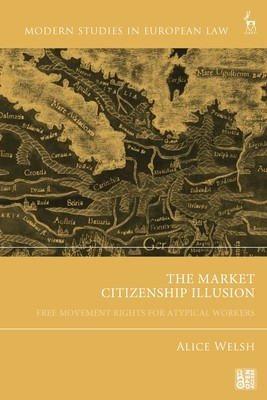
- We will send in 10–14 business days.
- Author: Alice Welsh
- Publisher: Hart Publishing
- ISBN-10: 1509966609
- ISBN-13: 9781509966608
- Format: 15.6 x 23.4 x 1.6 cm, hardcover
- Language: English
- SAVE -10% with code: EXTRA
Reviews
Description
This book challenges the existing focus in EU citizenship scholarship which tends to look only at the economically active. Arguing that the deliberately vague EU concept of 'work' allows for its restricted application in Member States, it shows how many workers and economic contributors are left out of the free movement regime. It does this by taking a mixed methods approach: relying on both qualitative case studies and legal analysis of EU and UK legislation, case law, and decision maker guidance. All this leads to the author making a significant and original argument that, if EU free movement rights are awarded on the basis of market credentials, more must be done to work towards a more contemporary, accurate and inclusive market citizenship.
Provocative and thought-provoking, this will appeal to all scholars of EU free movement law.EXTRA 10 % discount with code: EXTRA
The promotion ends in 20d.09:18:44
The discount code is valid when purchasing from 10 €. Discounts do not stack.
- Author: Alice Welsh
- Publisher: Hart Publishing
- ISBN-10: 1509966609
- ISBN-13: 9781509966608
- Format: 15.6 x 23.4 x 1.6 cm, hardcover
- Language: English English
This book challenges the existing focus in EU citizenship scholarship which tends to look only at the economically active. Arguing that the deliberately vague EU concept of 'work' allows for its restricted application in Member States, it shows how many workers and economic contributors are left out of the free movement regime. It does this by taking a mixed methods approach: relying on both qualitative case studies and legal analysis of EU and UK legislation, case law, and decision maker guidance. All this leads to the author making a significant and original argument that, if EU free movement rights are awarded on the basis of market credentials, more must be done to work towards a more contemporary, accurate and inclusive market citizenship.
Provocative and thought-provoking, this will appeal to all scholars of EU free movement law.

Reviews